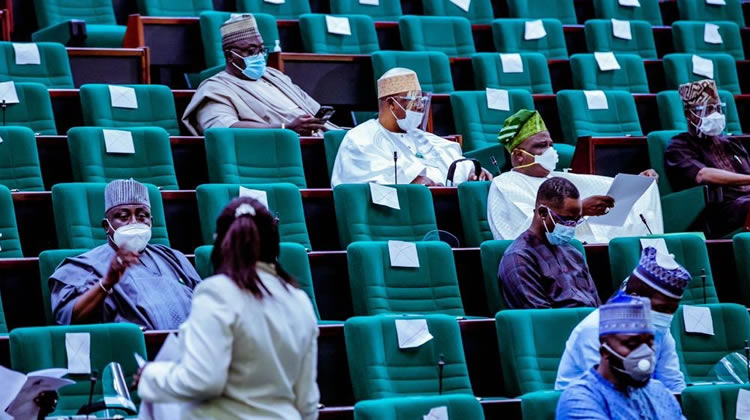
At the plenary on Thursday, the House also urge the Minister of Information and Culture, Lai Mohammed, to “as a matter of priority” create and execute policies to strengthen the creative industry.
Following the unanimous adoption of a motion moved by a member, Shina Peller, the House further urged the federal government to “increase the budgetary allocation of the Ministry of Information and Culture in the 2024 budget estimate for optimal performance.”
Moving the motion titled ‘Need to Strengthen the Nigerian Creative Industry,’ Peller noted that as the country seeks to diversify its economy from dependence on oil revenues, the creative industry, based on its current economic value, provides a veritable incremental source of employment, revenue and growth.
The lawmaker, who is an investor in the entertainment industry, noted that the United Nations suggests that the creative economy is a driver of employment, economic growth, innovation and social cohesion.
He added, “Available data tend to support this view. In a study that covered 11 creative industry sectors across five regions of the world, it was estimated that in 2013, the creative industries contributed $2.3bn to the global Gross Domestic Products and employed over 29 million people worldwide.
“Significantly and contrary to expectations, the creative industries, which constituted a modest 3 per cent of global GDP, yields more revenues than traditional cash spinners like the telecommunications sector.”
According to Peller, the British Council, through groups discussions with stakeholders, carried out a preliminary delineation of the creative industry in Nigeria, which identified the creative industry as advertising, architecture (interior decor, landscaping etc.); arts and crafts; fashion and design; home video (film), television and radio; music, and performing arts (carnivals, dance, drama, festivals, stand-up comedy); publishing (book fairs, e-resources, literature etc); tourism and hospitality (cuisine, museums and monuments, night clubs and event management, etc).
He also quoted a National Bureau of Statistics report of 2016, that Nigeria’s Gross Domestic Product in 2015 amounted to N94tn.
According to him, an analysis of the data from the report indicated that the creative industry jointly contributed about N5tn to broadcasting (29.6 per cent) and motion pictures, sound recording and music (22.8 per cent).
Cognisant that Nigeria’s film sector (Nollywood) is one of the active creative industries regarded as a major force in the country’s economic growth and the strongest claim to global influence within the creative industries which contributes about 2% to the country’s GDP, generates annual revenue of 208 billion naira and offers legitimate employment to over one million people making the sector the second largest employer after agriculture;
The lawmaker noted Nollywood is the world’s second-largest film industry after Bollywood, and it currently constitutes 11 per cent of Nigeria’s non-oil exports, which produced approximately 40 films weekly.
He said, “The third sector to assess Nigeria’s place in the global creative industries plane is the Nigerian music industry which produces over 550 albums annually at the global level. The late Afrobeat creator, Fela Anikulapo-Kuti, was an iconic musician in Nigeria. But recently, Damini Ebunolowa Ogulu (BurnaBoy), a Nigerian singer and songwriter, won the Best International Act at the 2019 BET Awards, and was nominated the Best World Music Album at 62nd Annual Grammy’s Awards. He also won Best International Act at the 2021 BET Awards.
“Recently, top Nigerian artiste, Davido’s album titled ‘Timeless’ has featured over 10 million user-generated playlists on Spotify, the album had over 12 million streams in 24 hours, this was the first time an album would achieve such a feat.”
Peller added, “The House is worried that the creative industry is challenged by lack of intelligible policy. In 2011, the then President Goodluck Jonathan promised to refocus the creative industries to achieve excellence. The minister of Information and Culture, Lai Mohammed, announced a tripartite move by the government, the British Council and the Tony Elumelu Foundation to map the creative industry which has the potential to create employment, generate income and revenue for the economy.”





